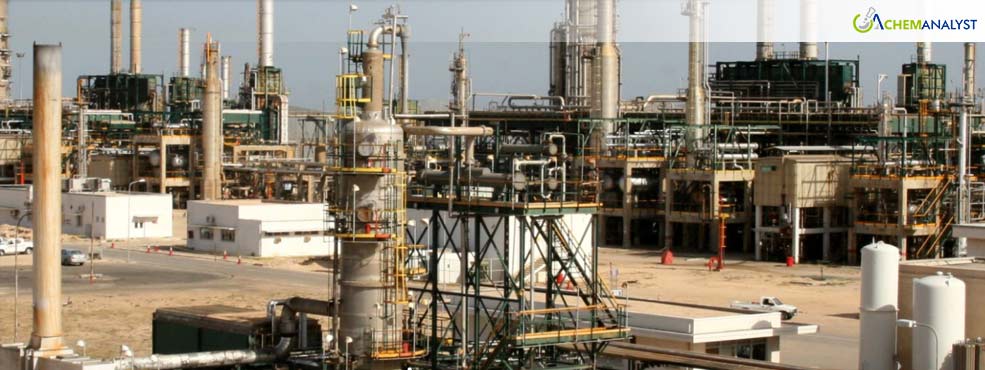Welcome To ChemAnalyst

Libya's crucial Zawiya oil refinery was severely damaged on Sunday after clashes erupted between armed groups in the vicinity, leading to fires in several storage tanks and forcing the state oil company, The National Oil Company (NOC), to declare force majeure.
The refinery, located 45 km west of the capital Tripoli, is the country's second largest, with a refining capacity exceeding 120,000 barrels per day (bpd). It plays a vital role in supplying fuel to the local market.
The violence erupted early Sunday morning, causing significant damage to the refinery's infrastructure. Videos circulating on social media showed several storage tanks engulfed in flames.
NOC confirmed the incident in a statement, declaring a "state of force majeure and a state of emergency level three (maximum degree)" due to the "serious damage caused to several tanks at the Zawiya refinery."
The statement attributed the damage to "clashes with heavy and medium weapons" between armed groups operating in the refinery's vicinity.
The emergency personnel brought the fires and subsequent gas leaks under control despite the ongoing clashes, limiting danger.
NOC spokesman Khaled Ghulam assured the public that fuel supplies to the Brega Oil distribution company's tanks remained secure, and that petrol deliveries to service stations would continue without interruption.
Reports from Libyan news sites indicated one fatality and ten injuries among the armed groups involved in the clashes, although these figures have not been officially confirmed.
The Zawiya refinery, built in 1974, is a critical component of Libya's oil industry. The city itself has a history of violence, with frequent clashes between armed factions. In May, a similar incident resulted in one death and a dozen injuries before tribal leaders intervened to de-escalate the situation.
Sunday's events prompted the closure of schools and the university in Zawiya as a precautionary measure. The coastal road connecting the city to Tripoli was also briefly closed but has since reopened.
Libya, which possesses Africa's largest oil reserves, has been grappling with instability and political divisions since the 2011 uprising that toppled Muammar Gaddafi. The oil sector has been repeatedly targeted by blockades and disruptions, often linked to social grievances, security threats, or political disputes.
Prior to the recent unrest, Libyan oil production had shown signs of recovery, reaching 1.4 million bpd in early December, up from a decade-long average of around 1.2 million bpd. This increase was attributed to improved security conditions and new investments in oil infrastructure. However, the attack on the Zawiya refinery highlights the ongoing fragility of the country's oil sector and the persistent threat posed by armed groups.
The declaration of force majeure allows NOC to be exempt from its contractual obligations for oil deliveries, a measure typically invoked in exceptional circumstances. The impact of this incident on Libya's oil production and the country's overall economic recovery remains to be seen.
We use cookies to deliver the best possible experience on our website. To learn more, visit our Privacy Policy. By continuing to use this site or by closing this box, you consent to our use of cookies. More info.
